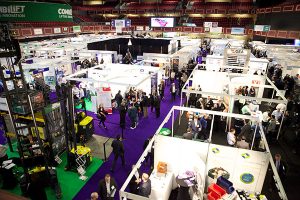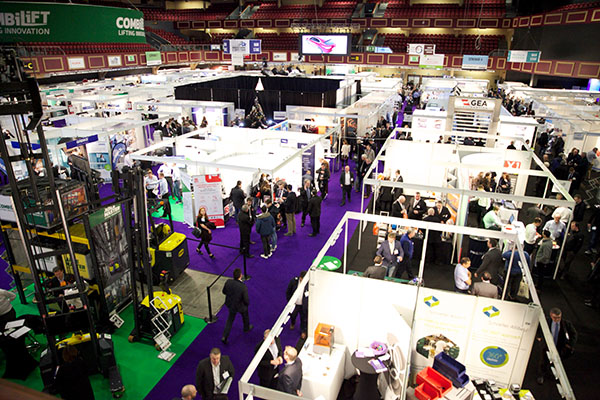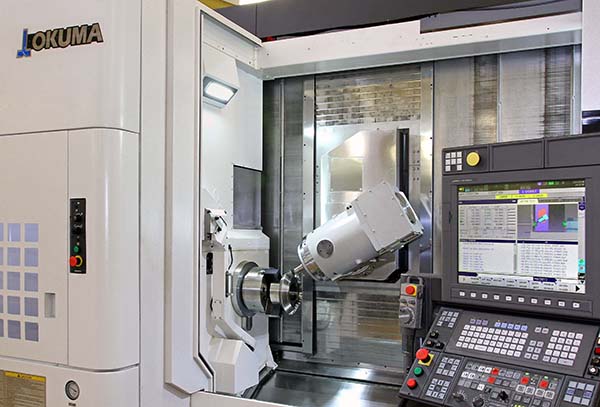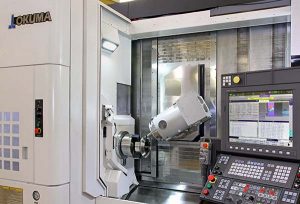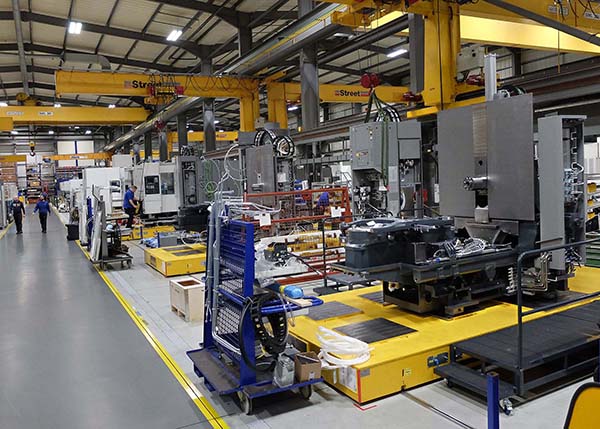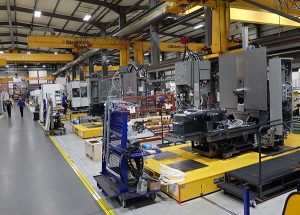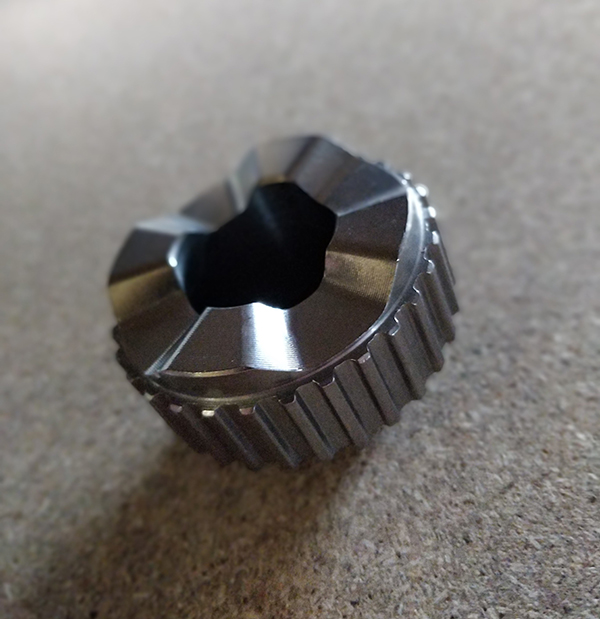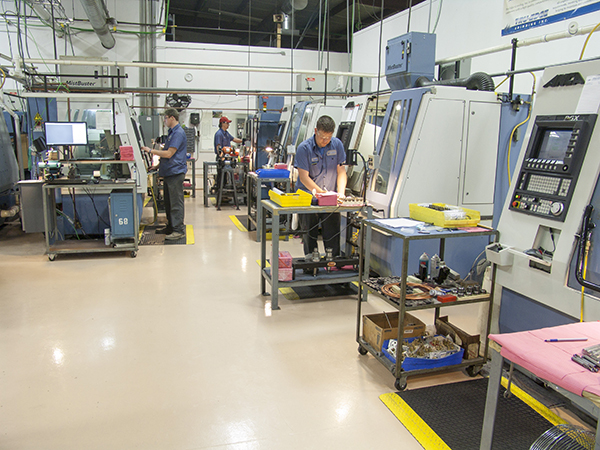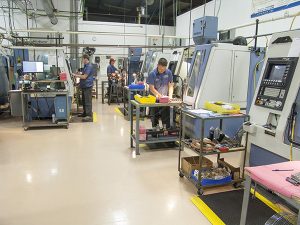“Edgecam means shorter machining cycle times. And shorter machining cycles increase our productivity.” Those are the words of Cyril Gloriant, technical director at a company producing complex components for a variety of industry sectors, including agriculture, medical, aerospace and gas.
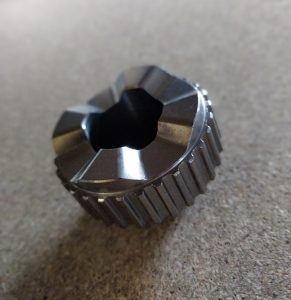
As Société Toulousaine d’Etude et d’Usinage (STDU) manufactures parts with tolerances down to 0.01 mm, Gloriant says the company needs “a perfect working combination of operator, machine tool and software”.
Around 80% of components at STDU are machined using Edgecam CAM software to drive a number of CNC lathes and mill-turn machining centres, including those manufactured by Mori Seiki, Haas, Manurhin and Hardinge. “It’s important for Edgecam to be able to pilot all our machines; we can’t accept a two-tier production system,” says Gloriant. “As all the necessary machining information is contained within the post-processors, all our operators can use it, while only a few are now capable of manually programming the machines.”
He adds that Edgecam offers real flexibility to the company’s pool of CNC machinery. “If we suddenly need to move a job from one machine to another, production can be switched rapidly with the same kinematic characteristics and a different post-processor.”
Operating from 1000 sq m premises in Pinsaguel, France, with 10 employees, STDU purchased Edgecam in 2017, and progressed to using it daily in the workshop early this year, as part of a planned development. Gloriant, who will take over as CEO in September, says that the company currently uses both Edgecam’s milling and turning modules, incorporating all of the software’s machining strategies, including Waveform turning and milling.
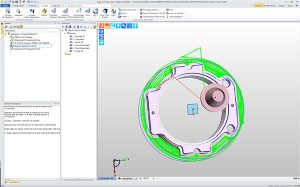
STDU currently finds Edgecam’s feature recognition capability to be particularly valuable. “With a single click Edgecam analyses the part and determines the operations to be carried out, along with recognised function properties such as depth, minimum radius and angles. The feature prepares machining sequences which can easily be modified according to our specific requirements. Once Edgecam has defined the functions according to part topology, machining runs smoothly every time, and we no longer have to worry about aspects such as tool depth and drills. Edgecam automatically machines the features.”
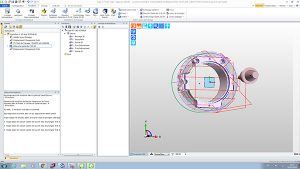
He says reduced programming and cycle times, as well as acquiring new skills and knowledge from Edgecam, has opened up new markets for STDU in serial production and more complex parts. “As customers know we can now produce parts that previously we didn’t have the skills or capacity for, they’re designing more innovative and complex components, and we’ve risen to the challenge every time. We’re saving up to three hours by programming the machines offline, while they’re running with other jobs.
“When we receive the CAD model from our customer, we determine which production method we’re using – either turning or milling – along with the appropriate machine tool,” continues Gloriant. “We then open the 3D CAD model in Edgecam and run the feature recognition module, which analyses the part and prepares the machining sequence.” When parts are to be milled, with a long machining cycle time, the company also uses Edgecam to establish a quote, as it provides STDU with accurate timings.
Gloriant says the company has already seen turnover rise from €1.2m in 2016, to €1.35m last year – a rise of 12.5% – thanks to winning contracts that the business couldn’t have undertaken without Edgecam. “Between 20 and 30% of our machining is on new products, for customers.”
And plans are underway to take state-of-the-art CNC programming to the next step. Operatives are currently training on the software’s Strategy Manager feature-based automated machining system, which will reduce certain aspects of repeat programming to mere seconds.
“We’ll soon be able to rely on Strategy Manager’s predefined functions based on part topology to save us even more time on preparation, programming and machining cycle time,” says Gloriant. “We’re intending to define a strategy for each type of part that can be replicated, such as the number of tools, dressing operations, pre-drilling, drilling and cutting, which will be applied each time.”
While the company works mainly as a subcontractor, it also provides a reverse engineering service, offering advice concerning the feasibility of a part, and examining and evaluating the topology to ensure it functions correctly, at the lowest cost.
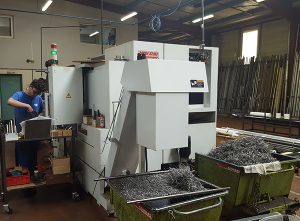
In conclusion, Gloriant says although the company originally invested in Edgecam so it could work directly on customer 3D files without the need to redraw plans, and easily configure it for STDU’s own requirements, as well as creating macros, the business quickly realised how it could save time and money throughout the whole manufacturing process. “For example, thanks to the Waveform turning strategy we’ve reduced machining time by up to 30% on some parts, and up to 40% on milling in association with rest-material machining.
“As quality and service are STDU’s priority, Edgecam’s dynamic roughing strategy allows us to concentrate all our attention on those targets.”
For further information www.edgecam.com
